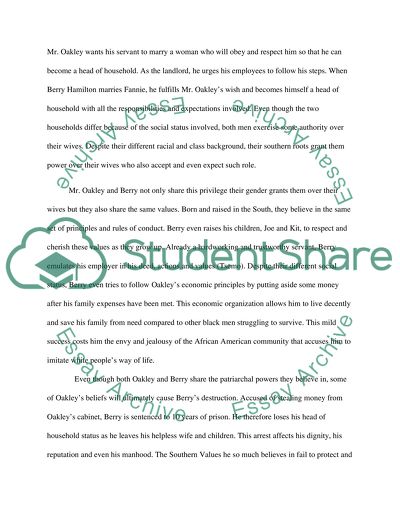Cite this document
(“Masculinity in Paul Laurence Dunbar's The Sport of the Gods Essay”, n.d.)
Masculinity in Paul Laurence Dunbar's The Sport of the Gods Essay. Retrieved from https://studentshare.org/english/1446653-masculinity-in-paul-laurence-dunbaryies-sport-of
Masculinity in Paul Laurence Dunbar's The Sport of the Gods Essay. Retrieved from https://studentshare.org/english/1446653-masculinity-in-paul-laurence-dunbaryies-sport-of
(Masculinity in Paul Laurence Dunbar'S The Sport of the Gods Essay)
Masculinity in Paul Laurence Dunbar'S The Sport of the Gods Essay. https://studentshare.org/english/1446653-masculinity-in-paul-laurence-dunbaryies-sport-of.
Masculinity in Paul Laurence Dunbar'S The Sport of the Gods Essay. https://studentshare.org/english/1446653-masculinity-in-paul-laurence-dunbaryies-sport-of.
“Masculinity in Paul Laurence Dunbar'S The Sport of the Gods Essay”, n.d. https://studentshare.org/english/1446653-masculinity-in-paul-laurence-dunbaryies-sport-of.


